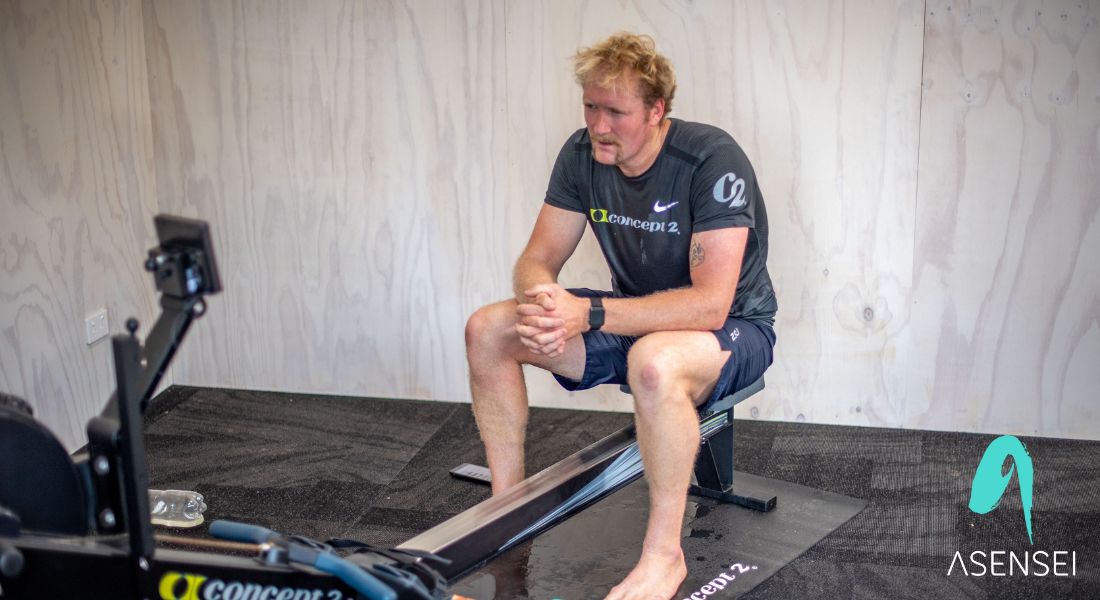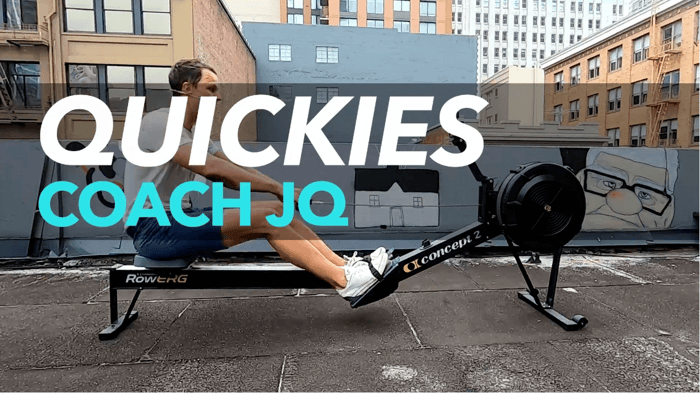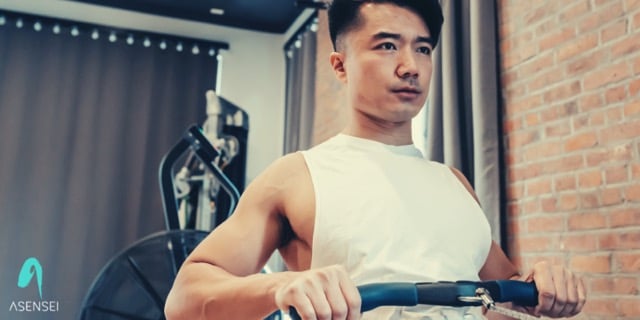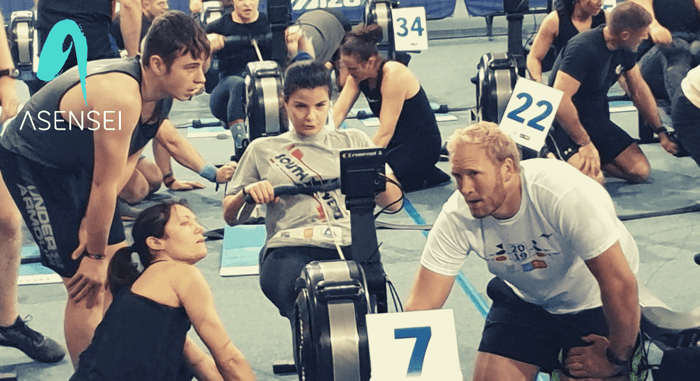asensei takes its name from the Japanese ‘sensei’, typically a martial arts coach, and the Greek prefix ‘a-’, meaning ‘without’. But with asensei, you’re only without a coach in the conventional sense, thanks to our partnership with two-time Olympic gold medalist, indoor rowing world record breaker, and author of The Kiwi Pair Eric Murray.
Eric leads regular livestream workouts and provides in-app coaching in collaboration with asensei, sharing his wisdom with the asensei rowing community. We caught up to find out more about Eric’s views on coaching as a responsibility, being a coach to thousands of people around the world, and training with asensei.
asensei: How do you see coaching as a responsibility?
EM: I personally feel like my role in terms of coaching has been built on the ideas and experiences that I went through and learnt from as an athlete. I was instilled with knowledge and ideas which made me into a formidable and very successful person in the sport of rowing. I always felt like when we talk about 'responsibility’ it’s a similar principle to education, where the knowledge is handed down to the next generation to continue to adapt and grow, become wiser, and so it would be a shame to not share my experiences which can then be used, adapted by someone else, to continue the growth for future generations to come.
asensei: Does the benefit of coaching go both ways, to you as a coach as well as to the student?
EM: There is a benefit to both a coach and an athlete. I feel like I can see and hear what people struggle with, and that allows me to make changes to the communication and description of what I think is best, and allow people to understand the vision which I am trying to get them to see. Rowing is about a feeling and an action which sometimes I think is better described as a dance. Once you understand the action, the forces, it allows people to get the ‘feeling’ for what I ‘see and know’ can make them better. The more feedback from people, the more I learn to adapt my style of ‘coaching’, to get a better interaction with my athletes.
asensei: How does asensei enable you to act on the idea of coaching as a responsibility?
EM: asensei’s vision has always been to help others and be the ‘guide’, hence being a ‘sensei’. And so I see those visions in the same principles which I have tried to lead, in terms of using that skill and knowledge that I have, to pass down to the next person, who then will do the same in the future.
‘Sensei’ roughly translates as a ‘one who has gone before’, a living ancestor, someone who holds the sum of ancestral knowledge and is able to impart it to students. With every generation, that knowledge becomes greater and more detailed, and each coach is able to pass that knowledge on to a further generation. For many, there is a deep sense of obligation to pass on what they’ve learned. With asensei, the reach of coaching knowledge is greater still, and Eric has become a coach to thousands of people in a way that just wouldn’t be possible with conventional coaching methods.

Eric sees passing on that knowledge as a responsibility. Having achieved at the highest levels, he now considers it his duty to coach others, building on what he has learned, echoing asensei’s vision.
There is, inherent in a sensei, a sense of obligation – not only to the next generation of athletes, but to the last; to the knowledge, support and opportunities that were gifted to us, and which it is our duty to pass on.
asensei’s vision is based on the equation: body + coach = athlete. Everybody has the capacity to be an athlete, as long as coaching is tailored to each individual’s specific needs. Eric Murray recounts his Olympic wins as being due to a whole team of people, but specifically mentions his crew’s physiologist, who helped the Kiwi Pair train not necessarily harder, but more specifically. Taking Eric and Hamish’s needs into account allowed them to train in a highly personalised way, and led to their multiple wins. Training with asensei is the embodiment of this ethos.
Choosing a coach is a very personal decision, with options often limited by cost, geography, and availability. Even though Eric lives in New Zealand, through asensei he is able to provide coaching to rowers of all levels worldwide, and with a much reduced burden of cost, whenever you row.
asensei reflects our aim to help introduce more athletes to more coaches, to help more coaches inspire and educate more athletes, and to enable an ever greater transfer of knowledge between them.
In removing the hurdles between coach and athlete we’re opening the door to a new era.
You can benefit from Eric’s coaching with the asensei rowing app, and by tuning in to his workout livestreams in partnership with asensei. Alongside Eric, asensei is fortunate to have partnerships with a number of rowing coaches, such as Johan Quie. To find out more about some of the training programs available, check out the following articles:
https://asensei.com/a/blog/new-indoor-rowing-program-legs-body-arms-by-coach-johan-quie
https://asensei.com/a/blog/new-rowing-program-quickies-with-johan-quie





